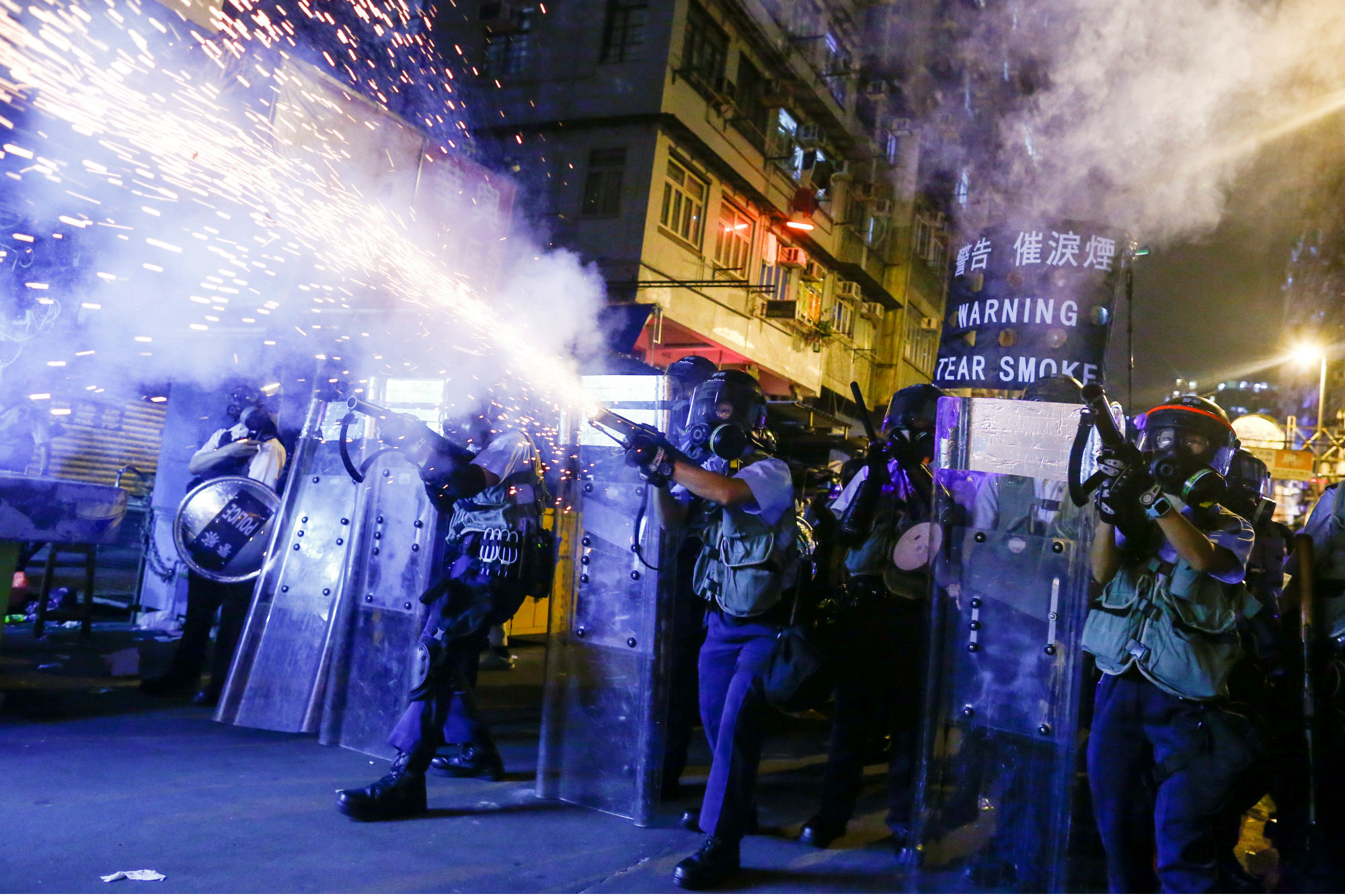What are the prospects of democracy in 2020? Four Council of Councils experts discuss the most important risk, challenge, or opportunity they foresee for the coming year.

Democracy in Crisis but Opportunities Remain
In many countries around the world, citizens took to the streets this year to vent their anger against political elites, suggesting that democracy is in crisis. In Latin America alone, Bolivia, Chile, Colombia, Ecuador, Haiti, Honduras, and Nicaragua—some of them among the region's fastest-growing economies—have been rocked by social unrest not seen for many years. While some grievances are unique to their respective countries, most of the protests were at least partly fueled by a perception that the political establishment is unable to address popular demands, be they greater political accountability to combat corruption, as in Honduras, an erosion of democracy, as in Bolivia, or inequality and insufficient public services, as in Chile.
This trend is likely to continue into 2020. In many developing countries—particularly in those that saw solid economic growth during the commodities boom—progress over the past decade produced a new middle class that is more politically aware and demanding, and political elites and governance structures have failed to adapt. Antiestablishment politicians will seek to fill the resulting power vacuum, making the emergence of more Jair Bolsonaro–like figures probable. Additionally, relatively low commodity prices and other unfavorable macroeconomic factors—exacerbated by uncertainty due to the U.S.-China trade war—tend to lead to lower growth, lower social spending, lower tolerance for corruption, lower approval ratings, and more social upheaval.
At the same time, these protests represent an opportunity to strengthen democracy, increase accountability, and take more effective steps to reduce inequality, just to name a few of the demands that have been voiced.
Global Democracy’s Four Daunting Challenges
The world will continue to see four major challenges to democracy in 2020.
First, authoritarian states will keep up their oppression of media and civil society. The Chinese government’s harsh reaction to the ongoing revolt in Hong Kong and the landslide victory for pro-democracy parties in District Council elections last month deserves great attention. Media suppression in Hungary, Russia, and Turkey is also likely to continue.
Second, attacks against certain ethnic or religious minority groups will persist. State-sponsored violence, such as in the Rohingya crisis, has mostly abated, but lone-wolf hate crimes show no sign of decline.
Third, political polarization is weakening institutions in advanced democracies. The unfolding U.S. presidential impeachment inquiry, the 2020 U.S. presidential election, and the United Kingdom’s Brexit drama promise to put the strength of these democracies to the test. In Asia, both Taiwan and South Korea have upcoming elections that will also be influenced by increasingly partisan politics. Free elections alone will not create the common ground within societies that is critical for a heathy democracy; there must also be political compromise.
Fourth, both states and individuals are exploiting digital technology to spread disinformation and incite populism. Wise regulations are needed to curb this worrisome trend.
Unless these challenges are met by proactive policies from both international and local defenders of democracy, the prospects for 2020 are not bright.
Global Democracy Needs Champions
Thirty years ago, democracy was a vehicle for freedom. In its rivalry with totalitarian communism, which suppressed liberty for ideological reasons, every freedom fighter became a democrat. Although not all gained their freedom, their fight saturated the global market of ideas with the desire for deliverance from oppressive regimes. Paradoxically, that’s the reason why the democratic vehicle of freedom has lost its attractiveness. Desperate attempts to rebuild its appeal by expanding the catalog of inalienable human rights are doomed to fail if, as political theorist Hannah Arendt warned, these rights are just empty words, or grotesque.
Today, global demand is not for freedom, but for equal access to prosperity. Unfortunately, democracy is not the only system perceived as capable of delivering it. Thirty years of communist China’s economic success have undermined the conviction that democracy, the rule of law, human rights, and market economies are preconditions for prosperity. Against the backdrop of crises affecting the West, China’s economic successes have formed an attractive alternative to the Western model used in parts of Asia, Africa, and Europe.
Am I pessimistic about global democracy’s future? On the contrary! Democracy is self-regulating; sometimes it must face a period of recession. The time for global democratic correction is approaching, and democracy can again become attractive. To do so, it must respond to today’s global demand to combat corruption, which leads to inequality of political rights and limits the pursuit of prosperity. Democracy’s glory days will return when it once again becomes the best instrument to fight this demon.
Whether this renewal will start in 2020 is unclear, but the global anticorruption campaign cannot start without the United States. Just as U.S. leadership was crucial in the global crusade for freedom, so too will it be indispensable in the future anticorruption campaign; the United States must set the example by fighting its own demons of corruption. Only then will it be able to build a worldwide coalition of the willing. In the meantime, democracy must adopt strategic patience.
The Biggest Threats to Democracy Will Be Digital
The biggest threats, risks, and opportunities for democracy in 2020 will derive from digital technology. Despite the obvious democratic gains that come from new digital technologies, such as those that capture evidence of mass atrocities or that secure voting systems against tampering, the world can expect more intrusion, manipulation, and disinformation campaigns next year, courtesy of the power of big data. Africa is particularly vulnerable, given its rapid adoption of internet-based technologies and relative absence of cybersecurity regulation. For example, only five out of fifty-five members of the African Union have ratified the organization’s Convention on Cyber Security and Personal Data Protection.
Additionally, a study by Stanford University and Facebook [PDF] has revealed evidence of Russia-linked digital propaganda campaigns in at least six African states. But Moscow is not alone in this behavior, and a critical question in 2020 will be whether emerging democracies become the testing ground for new technologies to undermine democracy.
Data privacy is also at risk. The Chinese government has demonstrated the very real risk of targeting the most vulnerable groups in the world. It has used a mandatory health program to harvest DNA samples. The program’s actual purpose is to perfect facial-recognition technologies that can be deployed to enhance security or quell dissent.
The question in 2020 is how much digital dominance society will permit and how much big tech firms will push back. By 2021, a UN Group of Governmental Experts is expected to have agreed upon norms that seek to tame technology and inform the application of international law in cyberspace. A critical challenge, however, will be the unintended consequences emerging technologies pose to democracy in particular.










